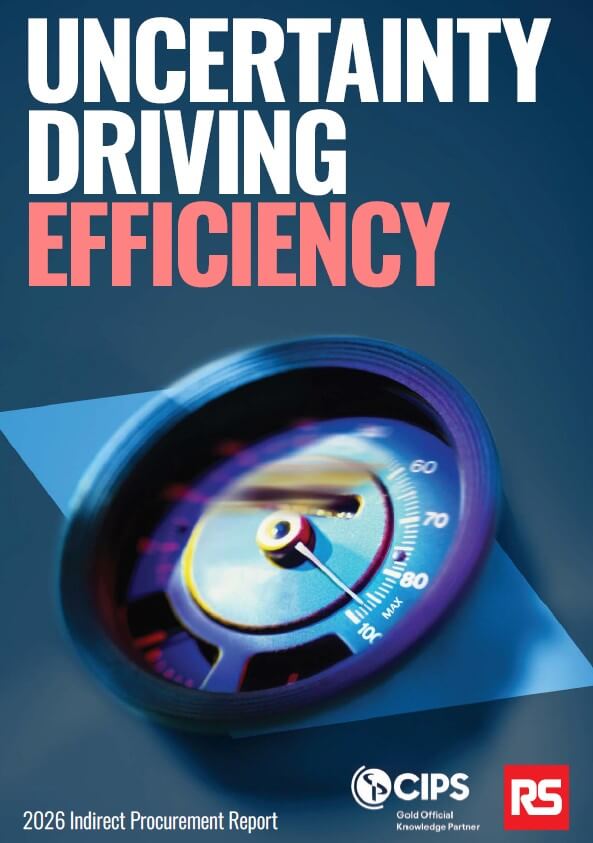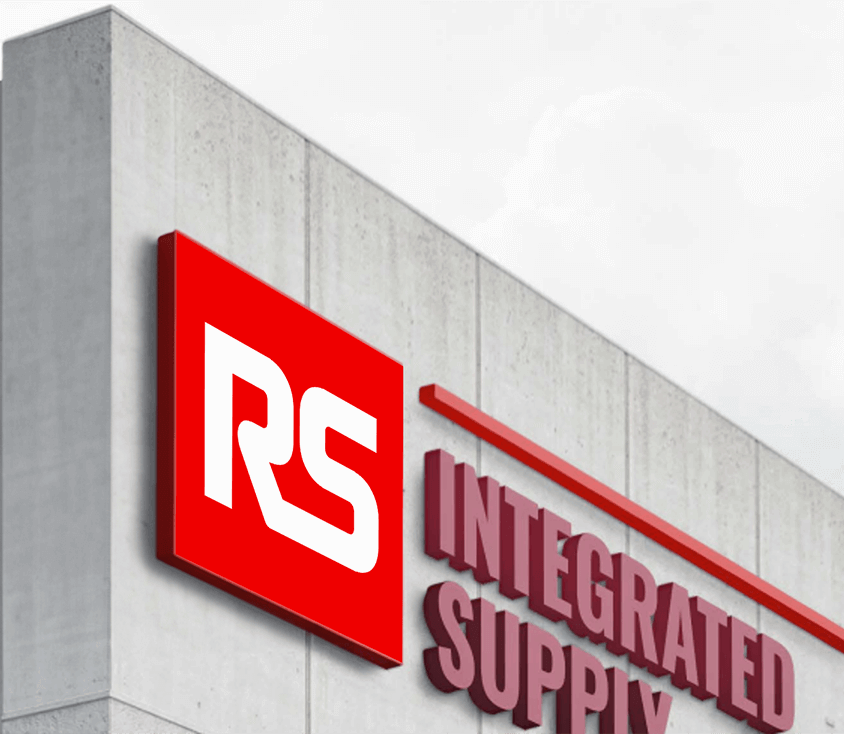Topics Covered
Tags
Published on
Read time: 6 minutes

As global disruptions continue in the form of conflict, natural disasters and more, the stability of the global supply chain faces continuous challenges.
Recognizing that the pre-pandemic status quo is unlikely to return, companies are embracing new strategies to manage heightened levels of risk. A recent survey by RS and the Chartered Institute of Procurement and Supply underscores this reality, revealing that procurement professionals rate supply chain disruption and risk management among their top challenges, surpassed only by inflation and rising costs.
Developing a diverse supplier base is a strategic way to enhance supply chain resilience and ensure continuity. Many businesses are establishing or enhancing their supplier diversity initiatives and commitments as part of a strategic action. Ensuring business opportunities are provided to those identified as diverse suppliers is a crucial component of responsible and ethical procurement, demonstrating a commitment to fairness and social responsibility. This approach strengthens community relations and aligns with many businesses’ Environment Social and Governance (ESG) goals. To many, embracing supplier diversity brings multifaceted benefits. This article explores what supplier diversity is in the business landscape and the benefits.
What is supplier diversity?
As a global provider of supply chain management, RS Integrated Supply defines supplier diversity as a deliberate effort to include businesses owned by underrepresented groups, such as minorities, women, veterans, LGBTQ+, and people with disabilities, in a company’s supply chain. The objective is to drive innovation while supporting local communities and enhancing overall business performance. Being a diverse supplier does not guarantee immediate business; it is more about fostering relationships based on shared values and innovation, rather than simply fulfilling numerical targets.
Why is suppler diversity important?
“From a business standpoint, you want to make sure that you are working with companies that represent your customers,” says Tom Cummins, Vice President of Supply Chain at RS Integrated Supply. “If you’re only working with the largest blue-chip companies, that’s not really representative of your customer base, is it?”
Laurent Chavagne, Strategic Procurement Lead for Europe at RS Integrated Supply, agrees. “Supplier diversity is important. We need our supply chain to be representative of the places that we work in,” he states. “Having just one perspective can weaken our foundation. Incorporating people with varied backgrounds into your supply chain and ways of working provides different insights and approaches; enhancing our overall vision and effectiveness.”
The commercial advantages as well as the ethical arguments for having a diverse supply base are also emphasized by Erica Zabriskie, Global Responsible Procurement Director at RS Integrated Supply. “It helps to broaden our perspective,” she argues. “Working with diverse suppliers from different parts of the world helps drive innovation and competitiveness.”
Plenty of business leaders share this same view. In a Forbes survey of more than 300 global executives involved in fostering diversity and inclusion in the workforce, 85% agreed with the statement “a diverse and inclusive supply chain is crucial to encouraging different perspectives and ideas that drive innovation.” Zabriskie adds, “It is about more than just doing good. It’s about smarter business, seeing solutions and capabilities that may have otherwise been overlooked.”
What does supplier diversity look like?
“Supplier diversity looks different depending on where you are, it varies from country to country in definition and maturity levels. Not all countries have supplier diversity initiatives,” explains Zabriskie. “Additionally, what is considered diverse in one country may not be recognized as diverse in another. Terminology, local definitions, and governmental regulations heavily influence these classifications, as well as what and how information is collected. Navigating these intricacies can be challenging as they differ from country to country.”
Chavagne highlights the need to consider alternative understandings of diversity where appropriate. “A lot of Environmental, Social and Corporate Governance programs that we encourage suppliers to sign up for tend to cater to the Western market,” he says. “Expecting smaller, diverse suppliers to meet the same standards as the larger corporations can put them at a disadvantage.
“In Poland, for instance, the diversity issue that I see in the field of technical trade is that foreign companies – often multinationals – dominate the market, but there is a lot of value in working with smaller local companies.”
Making accommodations, maintaining standards
“When collaborating with any supplier thorough vetting is essential. While some diverse suppliers may be large, many fall into the category of small or medium enterprises,” explains Cummins. “At RS Integrated Supply, we do not provide free passes; instead, we meticulously evaluate suppliers to ensure they meet our standard criteria. Additionally, we remain open to tailored arrangements based on specific circumstances for those who meet our minimum standards.”
An example from the UK illustrates what these tailored arrangements can look like. RS Integrated Supply recently became a corporate partner of MSDUK, which certifies businesses that are 51% or more owned, managed, and controlled by ethnic minorities. However, securing third-party accreditation involves financial and administrative demands that can be particularly onerous for small companies. To ease the burden, “There is a self-certification process that we will accept for the first year or two,” says Cummins, allowing businesses more time to achieve diversity accreditation.
The advantages of partnering with an integrator
An integrator with a strong and diverse supply base offers many advantages to clients. “It makes it a lot easier for clients to increase their range of diverse suppliers because we work with a bigger set of suppliers that they may not even be aware exist,” observes Chavagne.
Cummins has observed the growing significance of RS Integrated Supply in assisting customers with achieving supplier diversity goals. “Recently, an increasing number of our clients have requested tier-2 supplier diversity reporting. This involves submitting quarterly or annual reports – sometimes through third parties, other times directly to the client – which was not a requirement five years ago.
“Our clients across the UK and Europe are increasingly inquiring about our supplier diversity program, its management, and implementation,” he said. “They are keen to ensure their purchases are from companies that reflect their customer base, recognizing the overall value of supplier diversity.”
In response to this, RS Integrated Supply is streamlining the process for customers to obtain pertinent data. As Cummins explains, “Our clients are interested in more than just a report detailing our expenditure with diverse suppliers. They seek information about the suppliers themselves, their certifications, and even request copies of these certifications. Therefore, we are continually enhancing our system and processes to make approved supplier information readily accessible to our clients.”
By working closely with clients and suppliers, RS Integrated Supply can move the needle on supplier diversity throughout the supply chain and make businesses both more ethical and more resilient in the process.





